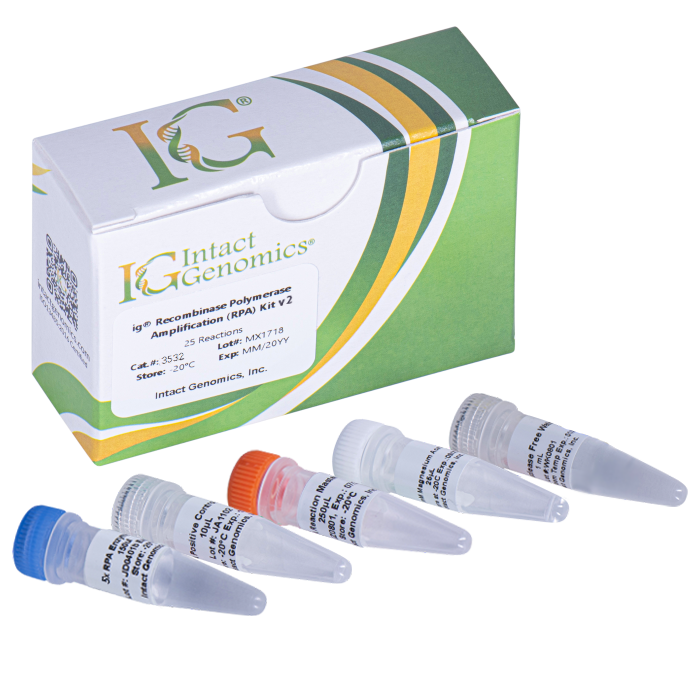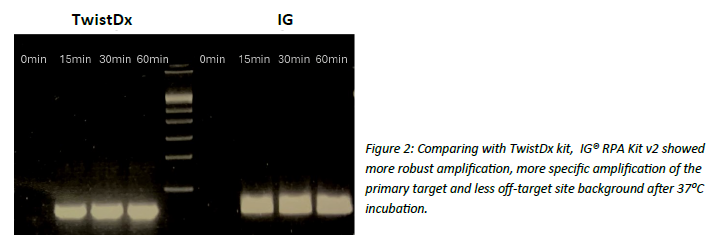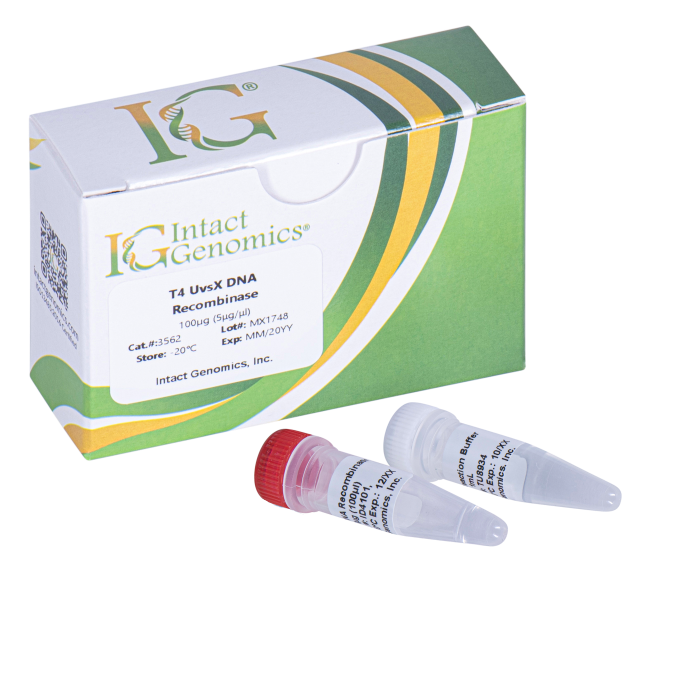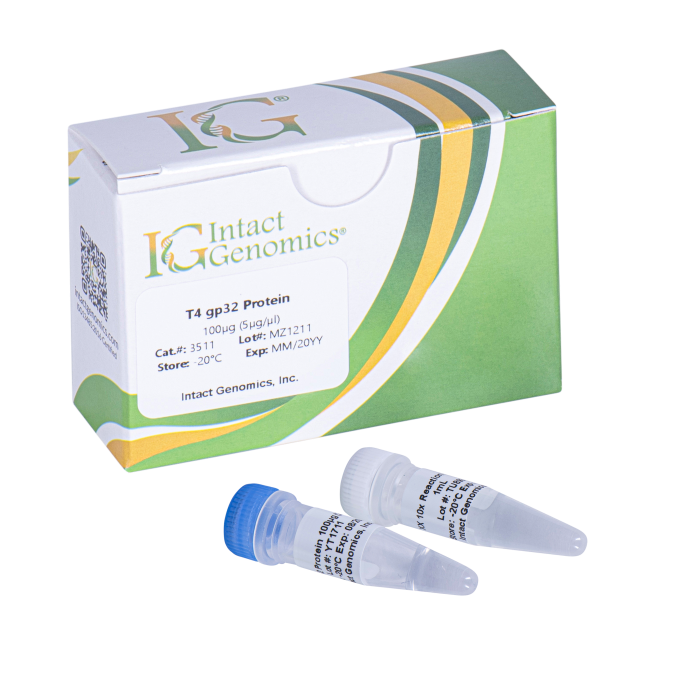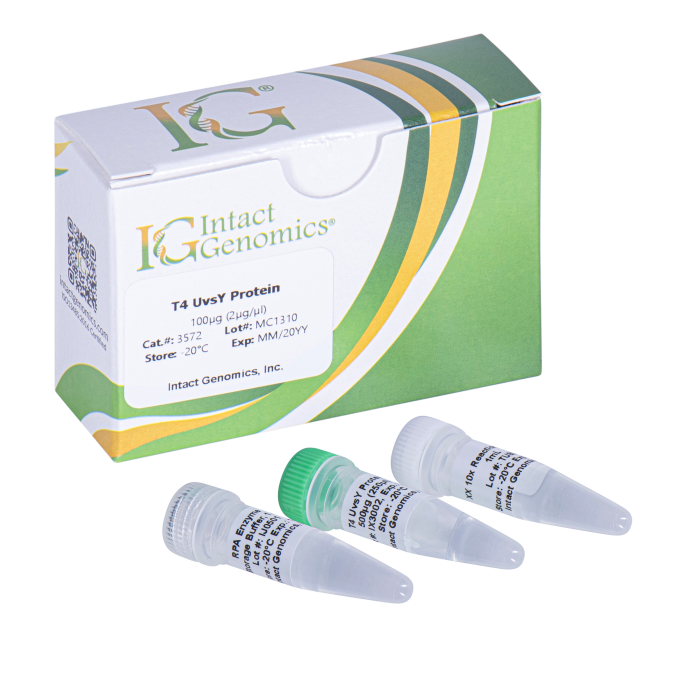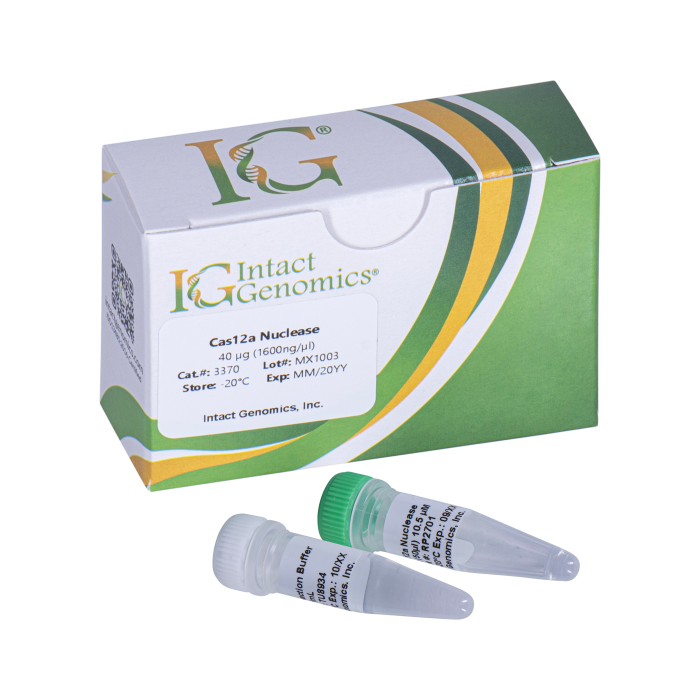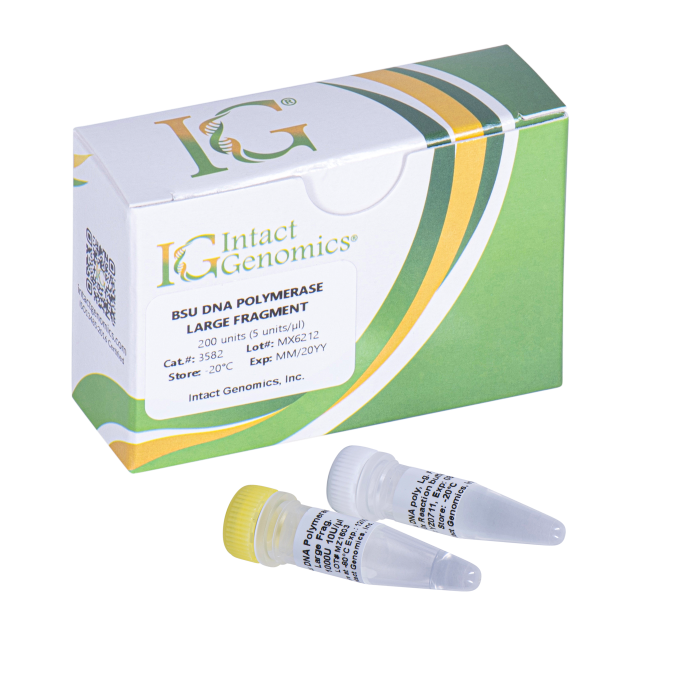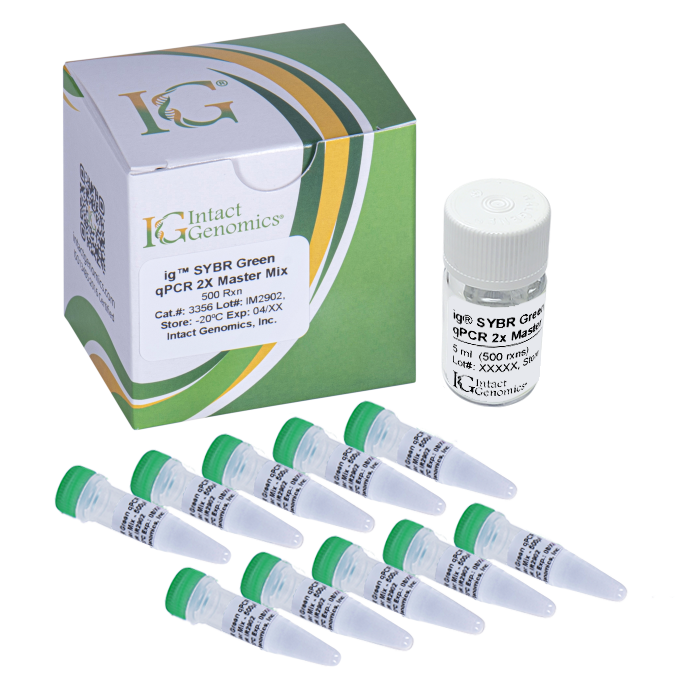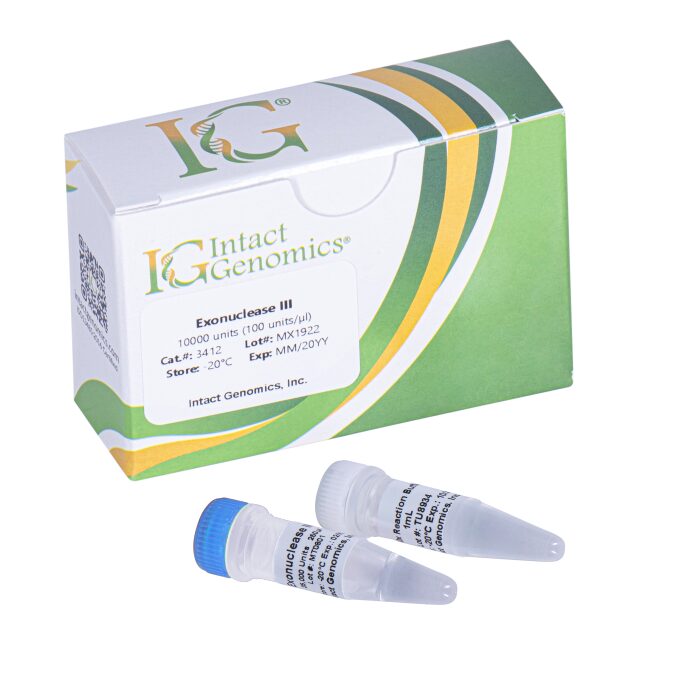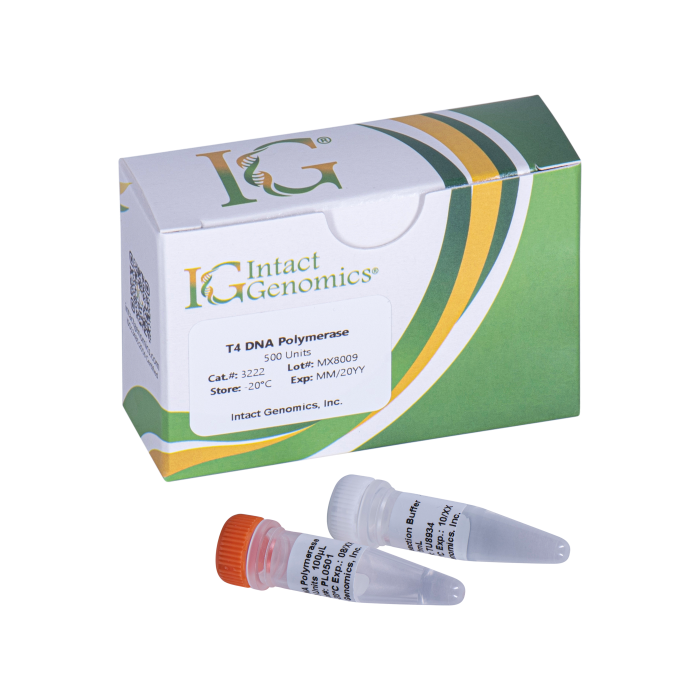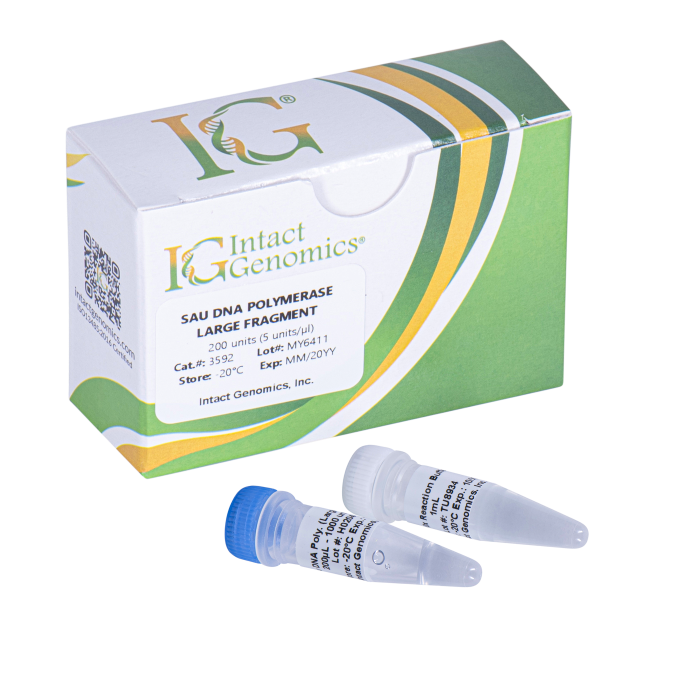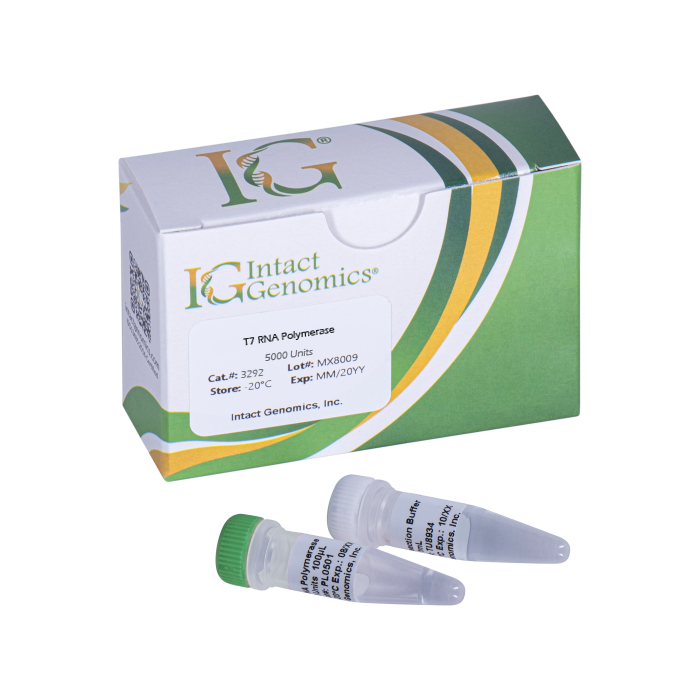New improved IG® Recombinase Polymerase Amplification (RPA) Kit v2 provides a mixture of the necessary enzymes to simplify and quicken the setup for your RPA reaction.
ig® Recombinase Polymerase Amplification (RPA) Kit v2
Price range: $243.00 through $1,935.00
Description
The new improved IG® Recombinase Polymerase Amplification Version 2 Kit (IG® RPA v2) helps researchers who seek the advantages of isothermal DNA amplification to achieve faster, more discernible results. IG® RPA v2 offers two key advantages over other kits:
- More robust amplification.
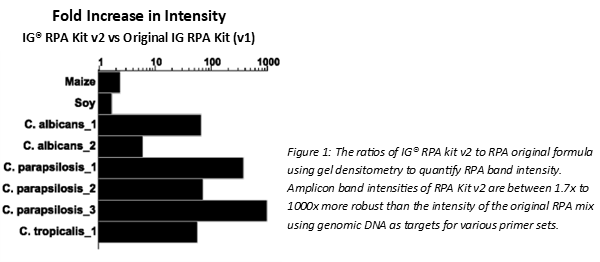
- More specific amplification of the primary target. Reduces background amplification of off-target sites.
Kit Includes:
- 4x IG® RPA Enzyme Mixture v2
- 2.5x IG® RPA Reaction Master Mix v2
- 280 mM Magnesium Acetate (MgOAc)
- RPA Positive Control (Primers and Template)
- Nuclease-free Water
Storage Temperature:
-20°C
Quality Control:
- All component proteins of the Enzyme Mixture are free from detectable nuclease activities.
- RPA activity of each lot is validated to be consistent with prior IG® lots and to be equal to or better than major competitors in the market.
References:
- Cromie GA, Connelly JC, Leach DR (2001) Recombination at double-strand breaks and DNA ends: conserved mechanisms from phage to humans. Mol Cell 8: 1163–1174
- Michel B, Grompone G, Flores MJ, Bidnenko V (2004) Multiple pathways process stalled replication forks. Proc Natl Acad Sci U S A 101: 12783–12788
- Liu J, Ehmsen KT, Heyer WD, Morrical SW (2011) Presynaptic filament dynamics in homologous recombination and DNA repair. Crit Rev Biochem Mol Biol 46: 240–270
Related Products:
- FastAmp® qRPA SYBR kit (Cat.# 3612, 3614)
- T4 UvsX Recombinase (Cat.# 3562) , Glycerol-free T4 UvsX DNA Recombinase (Cat.# 3562GF)
- T4 gp32 Protein (Cat.# 3515), Glycerol-free T4 gp32 Protein (Cat.# 3513GF)
- T4 UvsY Protein (Cat.# 3572), Glycerol-free T4 UvsY Protein (Cat.# 3572GF)
- Bsu DNA Polymerase (Cat.# 3585), Glycerol-free Bsu (Cat.# 3585GF)
- Exonuclease IV (Nfo) (Cat.# 3425)
3533 3534 3536
Additional information
| Reactions | 25 Reactions, 100 Reactions, 500 Reactions |
|---|
Recombinase Polymerase Amplification (RPA) Technology:
IG® Recombinase Polymerase Amplification Kit Version 2 (IG® RPA V2) amplifies DNA at a single and constant temperature (25 – 42°C) using a recombinase (e.g. UvsX), primers, a single-stranded DNA binding protein (SSB), and a strand displacing DNA polymerase. T4 UvsX is used in combination with its accessory protein, UvsY. The recombinase interacts with the primers to form nucleoprotein filament. This complex can bind with homologous double-stranded DNA through a strand exchange1-3. After the exchange, a single-stranded binding protein, T4 gp32, stabilizes the displaced strand. Finally, Bsu/Sau DNA polymerase extends the DNA from the primers, creating a new complete copy of the template, and amplification can continue like in Polymerase Chain Reaction (PCR).
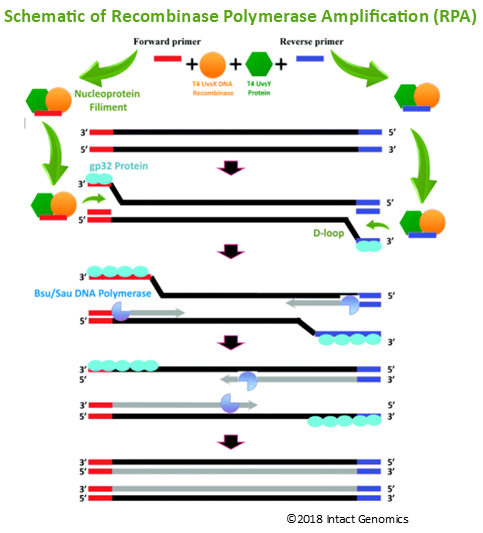
Applications and Benefits:
- Highly selective and sensitive isothermal amplification technique.
- Alternative to PCR. No thermocycler or other heavy equipment needed.
- Speed and sensitivity. Excellent for rapid point-of-care and on-site testing.
- No DNA pretreatment required.
- Flexible endpoint detection compatibility (e.g. lateral flow, real-time fluorescence).
Challenges:
Recombinase Polymerase Amplification (RPA) is a popular isothermal amplification technique used in molecular diagnostics. However, like any new technology, it faces certain challenges. Intact Genomics has been working in the RPA field for many years and our scientists have technical expertise to support the scientists and their research with this promising technology. Contact us for tech support and collaboration opportunities. We are committed to continuous innovation and optimization and we are likely to address many of these issues in our studies.
Technical Support:
Intact Genomics is committed to supporting the worldwide scientific research community by supplying the highest quality reagents. Each new lot of our products is tested to ensure it meets the quality standards and specifications designated for the product.
Please follow the instructions carefully and contact us if additional assistance is needed. We appreciate your business and your feedback regarding the performance of our products in your applications.
RPA Reaction Protocol:
- Thaw IG® RPA Enzyme Mixture, Reaction Master Mix, Nuclease-free Water and DNA Primers.
- Due to the viscosity of the Reaction Master Mix, it is recommended to mix the DNA primers and RPA Enzyme Mixture on ice first. Then, add the template and RPA Reaction Master Mix and mix by pipetting 10 times.
- Prepare a reaction mix according to the following table:
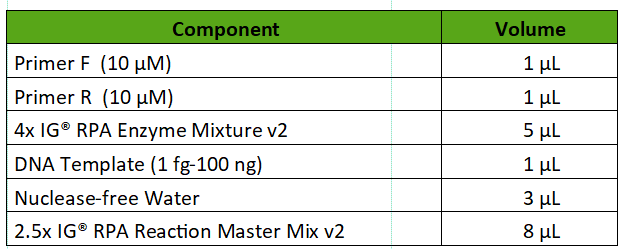
- To initiate the reaction, add 1 µL of MgOAc per reaction, mix thoroughly, and pulse spin the reaction tube briefly. RPA reactions start as soon as MgOAc is added.
- Incubate the tube at 37°C for 5-40 minutes. The reaction may also be performed at ambient temperature (~24°C) . However, we recommend increasing the incubation time to a minimum of 30 minutes.
- Purify the DNA via ethanol precipitation(or the user’s preferred method). Analyze the DNA by gel electrophoresis on a 1% agarose gel.
RPA Reaction with IG RPA Positive Control:
- Mix Positive Control with IG® RPA Enzyme Mixture thoroughly, then add Reaction Master Mix.
- Prepare a reaction mix according to the following table:

- To initiate the reaction, add 1 µL of MgOAc per reaction, mix thoroughly, and pulse spin the reaction tube briefly. RPA reactions start as soon as MgOAc is added.
- Incubate the tube at 37°C for 15 minutes. The reaction may also be performed at ambient temperature (~24°C) . However, we recommend increasing the incubation time to a minimum of 30 minutes.
- Purify the DNA via ethanol precipitation (or the user’s preferred method). Analyze the DNA by gel electrophoresis on a 1% agarose gel.

